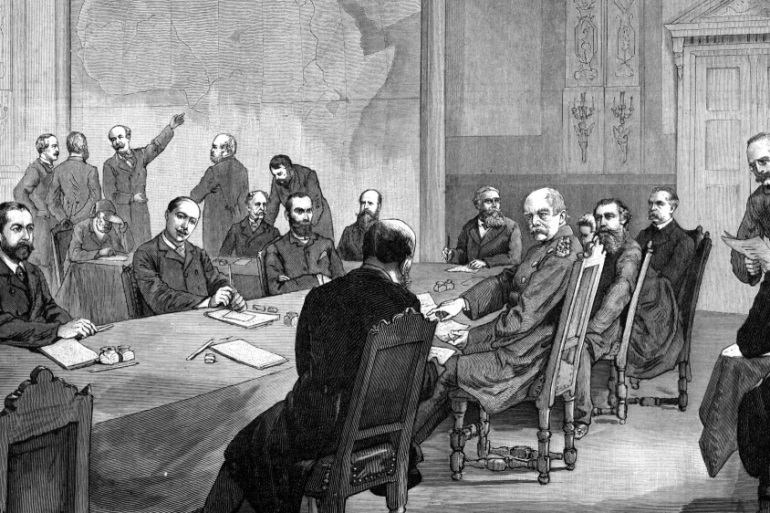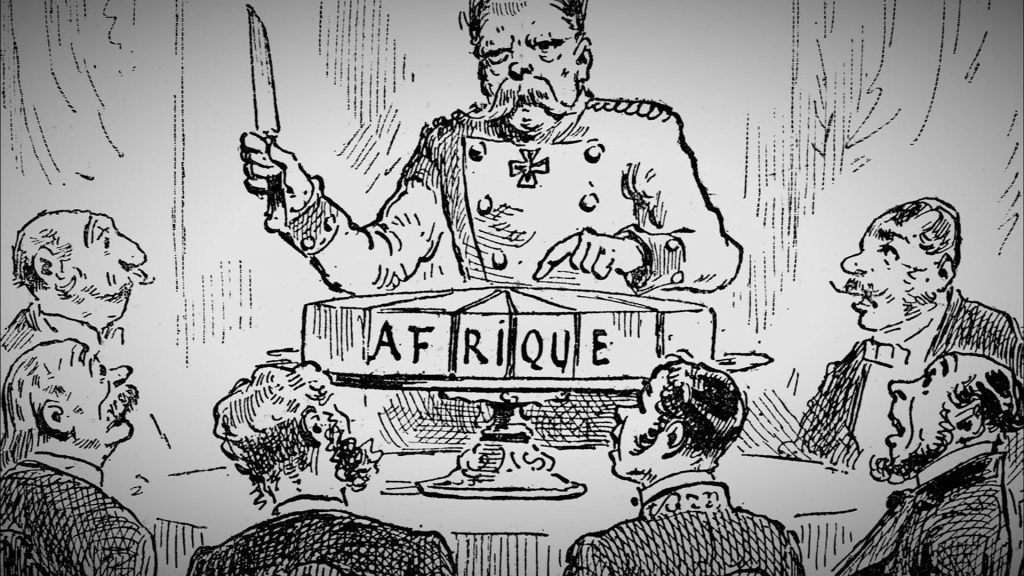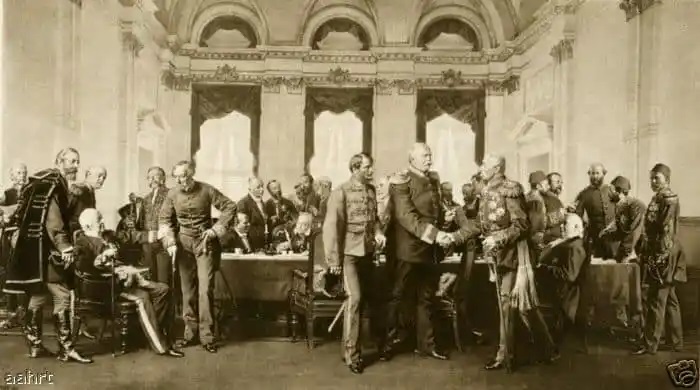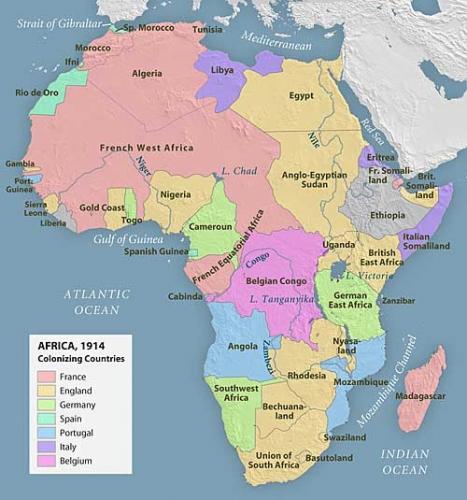Last Updated on December 1, 2022
Africa is plagued with countless problems, especially corruption, bad leadership, and mismanagement of public funds. But you’ll agree that colonization and adopting western cultures and beliefs gave rise to these issues. If you disagree, this account of the 1884 Berlin Conference will clarify this assertion.
Have you ever heard or read about the events of the ‘Congo Conference’ (also known as the West African conference)?
Due to Africa’s massive size and natural resources, the 1884 Berlin Conference sought to discuss partitioning Africa and dividing resources among Western countries. It was important for the nations present to join hands in plundering Africa. The impact was far-reaching, even to this day. Africa has been stripped not only of her resources and sovereignty but also of her cultural identity.
The European colonizers present at the 1884 Berlin conference argued that Africans lacked civilization and couldn’t make territorial decisions. As a result, they cunningly came up with a plan to ‘help’ during the Berlin Conference. But the truth is that they never wanted to help. The meeting was for self-gratification.

How it All Began
Many European merchants entered the interior markets of Africa in the early 1800s to take ivory back to Europe. At the time, Europe frequently manufactured luxury products. Europeans had only established commercial posts (defended by gunboats). So, their authority and influence were restricted to coastal Africa.
A number of circumstances, including diplomatic achievements, enhanced European local knowledge. And the need for resources like gold, rubber, and timber led to a rapid expansion of European involvement in Africa.
The common perception among Europeans was that no one owned Africa. Thus it needed to be claimed. “No one” – not even native Africans who called the continent home. Since no African representative or leader was present at the 1884 Berlin conference, the consensus was that Africa wasn’t advanced before the arrival of the Europeans.
Meanwhile, prior to this time, African empires that had become well-known on a worldwide scale by the 13th century attracted the interest and curiosity of the western world. You’ll remember the Great Mali empire under Sundiata Keita and Mansa Musa in the 11th Century. There was also Songhai Empire, Benin Empire, Ghana Empire, Mossi Kingdoms, and Great Zimbabwe between the 13 and 15th centuries, among many others.
Read: Facts About Ancient Egyptians That European Colonialism Has Misconstrued
The “Civilization” Agenda of Belgian King Leopold
King Leopold II of Belgium was among the political figures which showed a great deal of interest in Africa. Leopold had previously founded the International African Society, an organization whose goal was to “civilize” Africa. Together with Henry Morton Stanley who was invited to help, he founded the International Congo Society. This society was comparable to the previous one, but it added extra objectives for the society to accomplish. However, Leopold wasn’t exactly an honest person. He was a cunning and calculating leader who aimed to increase his own wealth using Africa’s resources. To stake claims over a significant tract of land in the continent’s heart, he started dispatching explorers who also served as his agents.
Leopold secretly bribed investors in the International Congo society as part of his “civilization agenda” for Africa. And to establish the Congo Free state, Stanley traveled to the region. At the same time, other European countries were fighting for control of Congo.
When Leopold’s secret plans became known, France dispatched Pierre Savorgnan de Brazza, an explorer, who founded Brazzaville and raised the French flag. Portugal also staked claims to the Congo region, and their claims were supported by agreements they had made with the former rulers of the Kongo Kingdom.
The 1884 Berlin Conference
Otto Von Bismarck, the first chancellor of the new German Empire, led the organization of the Berlin Conference. He was interested in controlling areas of the continent where exploration had already started. It was the 1884 Berlin Conference that gave rise to the General Act of the Berlin Conference, also known as The Scramble for Africa.

Leading European nations interested in learning more about the continent’s abundant resources attended the conference. This was justifiable on the pretense of civilizing or developing the nations they considered to be backward and barbaric. This prepared the way for the colonization of African states by western nations, which ultimately stripped the continent of its rich cultural heritage.
Read: Jaja Of Opobo: From Slave Boy to The Palace
What the 1884 Berlin Conference Intended to Achieve
The 1884 Berlin conference was organized after fierce competition and great conflicts among the western nations to claim the “civilization” role. To overcome these irregularities, Otto Von Bismarck called for the conference. He believed that these conflicts resulted from an unequal distribution of access to the economic benefit that Africa offered. This demonstrates that the Berlin Conference’s main goal was primarily economic and not for the development of the African republics like they claimed. The meeting started on November 15, 1884, and ended on February 26, 1885, after 14 weeks and 5 days.
At the conference, there were representatives from the Austro-Hungarian Empire, Denmark, Belgium, France, Great Britain, Sweden-Norway, Netherlands, Italy, Portugal, Spain, Russia, and the Ottoman Empire, but none from Africa.
The conference agreed that to prevent additional conflict, lands claimed by European nations were to be legalized, formalized, and then represented on a map. Additionally, colonies came to an understanding regarding trade routes and developed a plan for colonizing other areas. The continent of Africa was to be explored. Then, they would form treaties with the local indigenous population to provide protection for them.
Eventually, the European explorers or ambassadors would depart and return to their countries with the signed treaties. Then, the administration of that nation would next communicate with or negotiate with other European nations to have their claim to the African area recognized and undisputed.
Were Africans included in this Process?
Simply put, no. Africa wasn’t involved in the 1884 Berlin conference and the decision to divide the continent. The western countries considered Africa unable to rule itself. It would be interesting to highlight that the indigenous leaders frequently had no idea what the treaty meant or what they were signing. There were instances where these treaties were signed by impromptu rulers who lacked formal authority.

Ethiopia Outsmarted the 1884 Berlin Conference Plan
One African king, however, saw through the Europeans’ ploys. Clearly emphasizing that Ethiopia would not require their “protection,” Menelik wrote to the conference attendees. Menelik, who wasn’t the emperor yet at the time, but an important Ethiopian leader, said:
“Since the All-Powerful has protected Ethiopia up until now, I am hopeful that he will keep and enlarge it also in the future, and I do not think for a moment that He [God] will divide Ethiopia among the other Powers.”
However, this letter was ignored. But Ethiopia, alongside Liberia, was spared in the colonization rig-ma-role. Even the Sultan of Zanzibar begged to attend the conference but was unsuccessful. He had no idea that the main topic of conversation would include him.
The Impact of the 1884 Berlin Conference on Africa
There was a conspicuous disdain for Africans during the Berlin Conference. The Europeans disregarded their ideas, beliefs, and control over their territories as unimportant. At the meeting, all fourteen of the participating nations were properly represented, and eight of them began to control various sections of Africa by the time it was through. The six other nations, including Sweden-Norway, Austria-Hungary, Russia, Denmark, the Netherlands, and the United States, did not formally annex any territory in Africa. All African states, with the exception of Ethiopia and Liberia, had been colonized by Europeans by the end of the 19th century.

Even though the Berlin Conference lasted for more than three months, there were still significant issues and unresolved matters. A lot of the western representatives believed they could comprehend and control the complexity of the African republics despite the fact they had never been to Africa.
Despite the General Act appearing to forbid the slave trade, it is known that over ten million Africans in the Congo region perished under Leopold’s rule as a result of malnutrition, illness, and war. The Act served as a tool for the European nations to achieve public acceptance and legitimacy, but it had no bearing on the sufferings or living conditions of the indigenous living under their colonial masters. The locals were abused and used to serve his egotistical goals.
Read: Katherine Johnson: The Black Woman Behind America’s Successful Space Missions
The Impact of the Berlin Conference on Africa Remains
It has been said that some of the harm caused by colonization is too great to be repaired. Most of these colonized African nations still lack the necessary infrastructure to function effectively, even after obtaining independence. Within the confines of Africa, conflicts persist, and greed and corruption are the norms. However, there are also concerns that this could worsen an already tense political environment. Some African diplomats have urged for re-reading the African map and altering the limits set by the colonial overlords. Also, another group advocating for the preservation of colonial borders has emerged as a result of these anxieties. For the damages that extend deeper into the continent’s fractures, however, this is insufficient.
Before you go…
Hey, thank you for reading this blog to the end. I hope it was helpful. Let me tell you a little bit about Nicholas Idoko Technologies. We help businesses and companies build an online presence by developing web, mobile, desktop and blockchain applications.
As a company, we work with your budget in developing your ideas and projects beautifully and elegantly as well as participate in the growth of your business. We do a lot of freelance work in various sectors such as blockchain, booking, e-commerce, education, online games, voting and payments. Our ability to provide the needed resources to help clients develop their software packages for their targeted audience on schedule is unmatched.
Be sure to contact us if you need our services! We are readily available.











